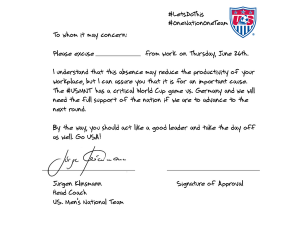If only it fell like Fall in DFW instead of July my mental health would dramatically improve.
Are your kids sleepy this week?
The American Academy of Pediatrics in a new report is encouraging middle and high schools to push back start times. Students in later starting schools have less daytime sleepiness, fewer tardies, fewer attention difficulties and better school performance compared to students in early-starting schools. Thankfully, as my daughter starts middle school she begins at 8:30 which allows her to catch a few more zzz’s. Now if I could only convince my son’s elementary school to do the same because the 7:50 start time is killing me!
I hope everyone is having a great first week!
Robin William’s suicide shines spotlight on mental health
The tragic and shocking death of beloved comic and actor Robin Williams has slammed us with mental health media attention. If a man such as Robin Williams could quietly suffer so desperately with Depression and addiction we should be more vigilant and aware; encouraging and affirming those who need treatment. Mental health awareness needs to stay on the societal front burner so that the 60% of people in the U.S. who need help will seek it out. Time Magazine has an excellent article on suicide and depression as does CNN about children’s mental health needs that are often missed, misunderstood or ignored.
RIP RW
Depressed? Try video games
Do not let your kids see this! Researchers found that in a group of 60 to 89 year olds playing video games improved depression and cognitive functions better than antidepressants. I wouldn’t worry too much. The researchers say the effect is likely limited to older adults because depression is only linked to executive functioning in this older demographic.
Is your Middle Schooler cool?
If so, you probably should be worried. A new study led by psychology professor Joseph Allen at the University of Virginia followed cool kids for a decade. In short, these “pseudomature” kids didn’t turn out okay according to Dr. Allen. Not only did their social status take a nose dive but they started struggling in even more serious ways. When they reached their early 20s many of them were struggling in romantic relationships and had problems with alcohol, marijuana and even criminal activity. They had a 40% greater rate of substance abuse and a 22% greater rate of criminal behavior ten years later. As these kids were caught up in middle school drama and chasing cool they were missing a critically important development period that comes from simply fostering same-sex friendships by just hanging out together on a friday night having pizza, ice cream and watching moves. To be a genuinely mature early adolescent means being hard working, responsible and a good, loyal, supportive friend. As parents we can reinforce these characteristics and qualities and instill confidence in them so our kids can withstand the pressure to be too cool, too fast.
vacation
The ignored pillar of health
The CDC calls it a public health epidemic. New research suggests that insufficient sleep is more problematic than most realize. Lack of sleep can cause irreversible health and brain damages. We are aware of the importance of sleep for mood and cognitive functioning. However, serious health problems are being linked to sleep deprivation. Experts say it’s also not something you can make up once it’s lost and people need to get over the idea that if they are sleeping they are being lazy or wasting time. Most of us are not getting enough and do not make it a priority. But sleep should be one of the 3 pillars of health along with nutrition and exercise.
Recommended amounts from the National Sleep Foundation
Newborns (up to 2 months), 12-18 hours
Infants (3-11 months), 14-15 hours
Toddlers (1-3 years), 12-14 hours
Preschoolers (3-5 years), 11-13 hours
School-age children (5-10 years), 10-11 hours
Teens (11-17 years) 8.5-9.5 hours
Adults (18 and older), 7-9 hours
Go USA
Is handwriting still important?
As our schools move ever so closer toward total technology are we actually handicapping students? Recent research suggests handwriting is critical for a child’s educational development. Children learn to read more quickly when they learn to write by hand and can generate ideas and retain information better. The cognitive processing involved in writing by hand is important for learning even through college. Real world classroom laboratories indicate taking notes by hand allows one to process a lecture more effectively and reframe it’s contents. Maybe the shift toward iPads, tablets and notebook computers for our kids in the classroom could have some drawbacks we’ve not anticipated.










